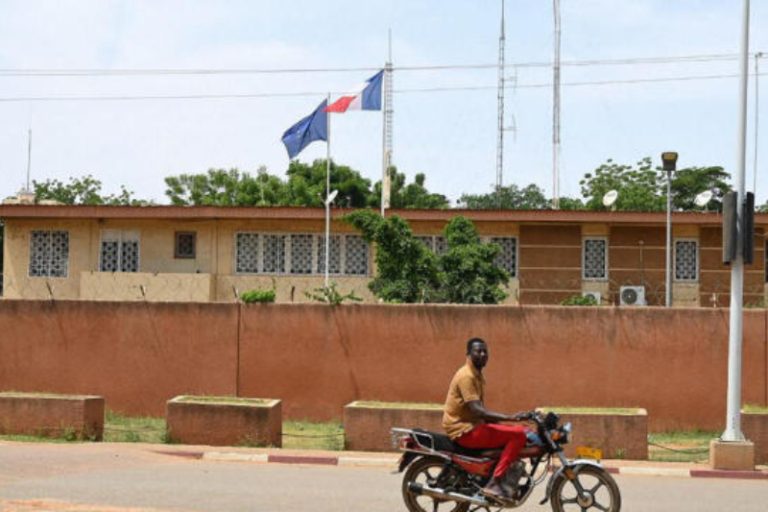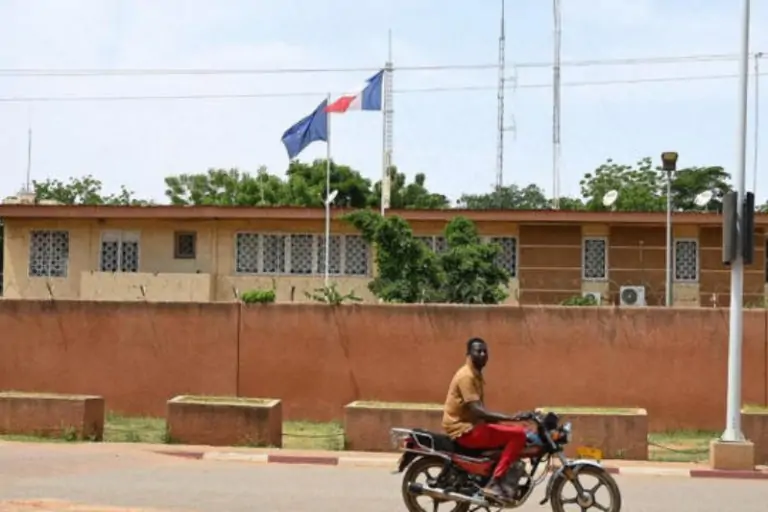

france niger diplomatic rift closure of the french embassy amid strained relations
France’s decision to shutter its embassy in Niger underscores a deepening diplomatic rift between the nations. The closure, which was the result of tense relations after the coup in Niamey, represents a significant departure from the norm in Franco-Nigerien relations. This move follows the announcement that all French soldiers engaged in anti-jihadist efforts would depart Niger by a specified deadline, signaling a rupture in diplomatic ties.
The rupture in diplomatic relations stems from escalating tensions following Niamey’s demand for the evacuation of French troops and the condemnation of military agreements with Paris. This development aligns Niger with Mali and Burkina Faso, both of which expelled French troops post-coups and established varying degrees of alignment with Russia. The growing ties with Moscow, evidenced by military cooperation agreements and geopolitical shifts, signal a recalibration of Sahel’s geopolitical landscape.
The closure of the French Embassy in Niger serves as the apex of a progressively deteriorating diplomatic relationship since the military takeover in Niamey in July. The demand for the evacuation of approximately 1,500 French soldiers engaged in anti-jihadist operations signified a pivotal moment in the strained ties between France and Niger. The denunciation of earlier military agreements that came along with this action confirmed the two countries’ divergent interests.
Simultaneously, an incident in Ouagadougou involving the detention of four French individuals exacerbated tensions. Discrepancies surrounding the detainees’ identities, labeled as intelligence agents by Burkina Faso and IT technicians by French sources, added layers of complexity to the already fragile diplomatic discourse, further fueling the rift between the countries.
Niger’s alignment with Russia following the rupture with France echoes similar strategic realignments witnessed in Mali and Burkina Faso post-coups. These evolving alliances reflect a significant shift in regional power dynamics, with Russia’s increased presence through entities like the Wagner paramilitary outfit and diplomatic agreements signaling a recalibration of influence in the Sahel region. Notably, recent agreements between Moscow and Niamey, including strengthened military cooperation, underscore the evolving geopolitical landscape in West Africa.
The closure of the French Embassy in Niger represents not only a symbolic breakdown in diplomatic relations but also poses practical challenges for both nations. The termination of local staff contracts and the closure of the embassy underscore the inability to conduct normal diplomatic functions amidst escalating hostilities. Moreover, incidents like the attack on the French embassy in July and subsequent threats to essential supply chains for the embassy personnel reveal an increasingly hostile environment that precipitated the closure.
The removal of Sylvain Itté, the French Ambassador to Niger, amid the escalating tensions underscored the heightening strain between the two nations. According to French President Emmanuel Macron’s description of Itté feeling “taken hostage,” his forced removal and subsequent confinement inside the embassy for nearly a month indicated a situation on the verge of a diplomatic crisis. It highlighted the increasingly hostile environment for French diplomatic representation in Niger.
Itté’s account revealed the challenges faced, including impediments to essential supplies due to threats and restrictions imposed by the new leadership. The story of “taking out the trash” without informing the junta portrayed a situation of resourcefulness and resiliency in the face of difficult circumstances, illuminating the extent of the diplomatic struggle French officials faced in order to maintain crucial operations.
The expulsion of French troops and subsequent alignment with Russia by Niger echo broader shifts in regional dynamics and the recalibration of alliances in Africa. Russia’s presence through entities like Wagner in Mali and agreements for civil nuclear cooperation in Niger indicate a growing influence and a divergence from traditional partnerships. As African nations forge new ties, particularly with Russia, it augurs a significant transformation in regional power dynamics, potentially reshaping the geopolitical landscape of the Sahel.
The closure of France’s embassy in Niger not only represents a rupture in immediate diplomatic ties but also holds broader implications for future engagements and alliances in the Sahel. The geopolitical significance of African nations increasingly aligning with Russia amid strained relations with Western powers portends a shifting global geopolitical equilibrium, potentially redefining the contours of influence and cooperation in the region.
The Oklahoma City Thunder secured their tenth consecutive victory by beating the Chicago Bulls 145-117. This victory raised their season…
Rob Walter Resigns his Position as coach for the Proteas men's team for white-ball games because personal problems needed attention.…
Starting April 2, South African drivers will get lower costs when filling their tanks as fuel prices decrease for all…
The U.S.-based driver training company Zutobi analyzed road safety worldwide and found South Africa stays last in driving danger since…
The Basketball Africa League (BAL) returns for its 2025 season with exciting changes and developments. Since 2019 the NBA-linked basketball…
The Somali president supports their military forces to eliminate the threats from Al-Shabaab, ISIS, and Al-Qaeda. The Somali National Army…
This website uses cookies.